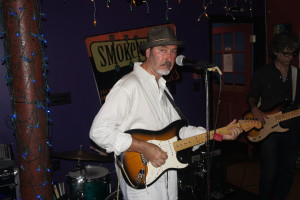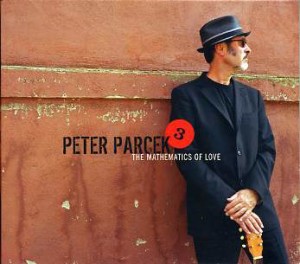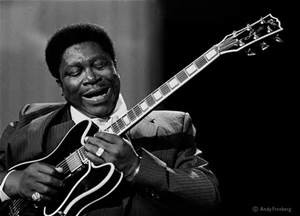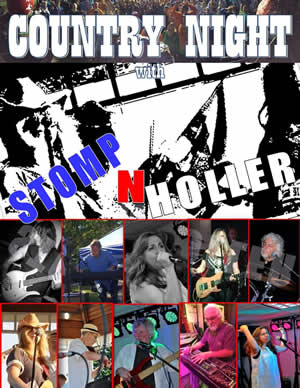
Peter Parcek
Some music events have a way of bringing things full circle back to what is most important. Boston blues guitarist Peter Parcek is gearing up for a very special show. May 14th is the day on which the king of the blues, B.B. King passed away, and Parcek will play a tribute concert to King at the Chevalier Theatre in Medford, Massachusetts. The concert runs from 8:00 p.m. to 10:00 p.m. The Chevalier is located at 30 Forest Street in Medford.
“We thought it would be quite fitting to honor the king of the blues by playing some of his music in a heartfelt way,” Parcek said. “We’ve gotten together some really cool guests, and were going to do what I consider to be gems from the vast and amazing catalogue of B.B. King. We’re going to go from the really early hits “Rock Me, Baby” and “Three O’ Clock Blues” to things from Live At The Regal and even breakthrough things like “When Love Comes To Town” and “Thrill Is Gone.”
Parcek feels that B.B. King stands out for many reasons. The local guitarist said that one of the distinguishing features of King’s performance is his use of electric guitar vibrato.
“The finger vibrato, bending strings, and adding vibrato to that, that just wasn’t done in the same way before B.B. King. With B.B. there was that thing of mimicking or approximating the human voice or the slide guitar or both but doing it without a slide. That hadn’t been done in that way on electric guitar, certainly not to that degree of artistry. There’s an argument to be made that he was a genius. I know that word gets used a lot, but when somebody comes up with something that is that groundbreaking, that pretty much is a quantum leap, that was a quantum leap.”
Parcek pointed out how every guitarist since then, even if they are not aware of it, have been influenced by B.B. King. “It would be hard to find someone who hasn’t been touched,” Parcek said. Parcek has also been blown away by King’s vocal ability. Having seen King live several times, including at several guitar battles, King would put his guitar aside to vocalize. “He’d just let the guitar hang to his side and then he’d go and sing a note and it was like ‘Oh my God. Oh wow. OK, how are you going to match that?’”
Parcek’s passion for King is immeasurable, his first guitar solo being a melodic line by King. Parcek, who had been playing harmonica in his youth, visited England during the late 1960s, and was blown away by the legends who were playing there at the time. Peter Green, Eric Clapton, Jeff Beck, and Jimi Hendrix were staples of the live scene in the United Kingdom.
Parcek came home from England and devoted himself to the guitar. Studying how Peter Green modeled his guitar on B.B. King’s style inspired Parcek to see King at a concert at Wesleyan University. He got to shake hands with the master.

Mathematics Of Love album cover
“The thing I remember about his hands is that they were quite large and softer than I had expected,” Parcek said. “It was almost like putting my hand into a couch. My hand could have fallen asleep right there.” B.B. King, he recalled, had to have been tired after driving there and performing, yet that did not keep the king from greeting his fans.
“He was just a different level of being,” Parcek recounted, “somebody who can push past that and still present this beautiful representation of the music and what it means, just tremendous dignity. I was so impressed by that. I’ve tried to adopt that. Besides all the musical brilliance, I’ve tried to remember that because there’s a role that musicians have in terms of inspiring and reaching out and being accessible and being gentlemanly, being nice to their audience.”
Parcek likens King to a spiritual being, someone who draws fans looking to him for a miracle. “I know when I put my hand in his, I was like ‘Man, I hope some of that rubs off. I want that vibrato bad,” Parcek said, chuckling heavily.
Parcek was tapped to perform the King tribute by the Chevalier’s committee as represented by Dino Cattaneo and Patrick Corman. Parcek found them enthusiastic so he began putting together a band and choosing some cool guests. “That’s how it came about,” Parcek said. “They reached out to me.” Parcek said the show will be part of the theater’s On Stage series, a practice of having about 115 audience members on stage with the artist.
“If you’re doing something which we hope will be hopeful and heartfelt, people can really get it. They can see it. They can feel it,” the guitarist offered.
Parcek’s band for the show will feature his favorite drummer, Marco Giovino from Robert Plant’s Band Of Joy, Buddy Miller’s band, and Tom Jones’s touring band. “He had been based in Nashville. He recently moved back to the area with his family. I was lucky to get him and my regular bass god Joe Klompus.”
Special guests include vocalists Andrea Gillis, Jay Scheffler from Ten Foot Polecats, Patrick Corman, New Hampshire harmonica player Joel Latulippe(Little Harpo), violinist-mandolin player Jeremy Van Cleave. Dino Cattaneo is going to sing “Beautician Blues.” Also from New Hampshire will be the Manchester Horns.
Parcek’s trio will begin by playing a set of his own music for the first set, including music from his Mathematics Of Love album as well as selections from his upcoming blues album. The new recording is in its final stages.
“We’re just kind of tweaking it at the moment,” Parcek related. “We recorded so much stuff, that you can actually kind of make two different records out of it. You can make one record that’s focused and bluesy, one that’s leaning more blues-Americana. I think what we’re going to do is record a couple more tracks and make the focused bluesy one.”
Blues is a tough word for Parcek. “I think what my vision of what blues is is a little bit expansive,” he offered. “It’s not just straight down the pipe. I guess I went wrong somewhere. I just like everything that feels good to me.”

B. B. King
Parcek can be seen semi-regularly at the Strange Brew Tavern in Manchester, New Hampshire, The Atwood in Cambridge, Massachusetts, and at a Connecticut venue. “It’s tough out there, man,” he said. “I don’t know how you can do it and not lose your shirt financially.” Parcek finds this an especially hard time for blues as rooms like Smoken’ Joe’s in Brighton and Johnny D’s in Somerville have closed for good, leaving more bands competing for fewer rooms.
“We have a great tradition in New England, of loving and supporting blues and having really major players up here,” he said. “My God, Ronnie Earl, Duke Robillard, Roomful Of Blues, Dave Maxwell, Ron Levy. These are serious people. These are great people. That’s our history. That’s our legacy here, and yet, we don’t seem to…I don’t know why exactly. It’s a tougher time too to get people out and here music.”
Live music, he said, now competes with the usual culprits of online entertainment, DVD, BlueRay, and many others. “It’s a different value system that it was a number of years ago, regarding music and musicians,” he said. Parcek feels music has been dropped into a backdrop position, something playing in the background while people are doing other things. It’s also a crowded field now that just about anybody can put out a record these days.
Parcek came into the Boston blues scene a number of years ago after living in Connecticut for a while. He came up here to be with his then girlfriend. Struggling, he worked in a music store, did some other work pertaining to his social work degree. The guitarist got a lucky break when Syncro Sound studio on Newbury Street had started to record blues artists. The studio had arranged for Pinetop Perkins to come to their recording sessions.
“They wanted some guitar on the record,” Parcek related. “They made me audition. They sent me three tracks and they said ‘Learn the piano riffs. We need you to be able to play the piano riffs with him.’”
Parcek passed the audition. “They liked it so much that I never got paid,” he reflected, chuckling. “It’s the truth. I never got a dime to do that. I recorded a lot of tracks on that record.”
A tour was planned and getting to play with Perkins was more important to the Boston guitarist so he went out on the road briefly with the legendary pianist.
“It was just an amazing experience,” Parcek said. “At that point, I was still being a counselor at Berklee, but this was a lot more exciting to me. So, I went and I took the jump. I’m still going, still somehow making the ends almost meet, but I love it. I think it’s what I was put here to do. I feel I’m doing the right thing if maybe my bank account doesn’t show it.”
Parcek fell in love with blues music just before he started the eighth grade. His mother married a man which required the family to move from one Connecticut town to another. That marriage didn’t work out, but the temporary step-father did do something right. He bought Parcek a radio that looked like a small refrigerator. Parcek, who had stayed in his room a lot, bought himself an antenna that allowed him to pick up signals from all over the country, including a station called WBON in Chicago.
“I’m listening late at night, and I’m hearing this thing. It’s like the hairs are standing up on my arms,” he said. “I had no idea what this was. I didn’t know anybody who was into it. The kids I went to school with, if they were really cool, they were into The Impressions or James Brown Or The Stones.” The young Parcek wrote down the names of the artists he was hearing to order them at his local record shop. When his records came in, a sweet old lady who worked the store asked him where he found out about those records.
“It was Best Of Muddy Waters,” Parcek related, “so he’s on the cover with this Don Bronstein photo. He looks like a Buddha with a little bit of sweat. The other one was ‘Moanin’ At Midnight,’ Howlin’ Wolf, and there is a line drawing of a wolf. She’s looking at them like ‘What is this?’ And she said ‘You didn’t hear these on WTIC,’ which was a middle of the road, light, pop, classical, news station.’”
Parcek simply said: “No, ma’am. I didn’t hear them on WTIC.” The old lady breathed a sigh of relief and she let the kid take them home. As soon as Parcek put the discs on his old record player, it was revelation time.
“Wolf, immediately, the hairs went up on my arms again, like a chill bouncing on,” he said. “And Muddy, I can’t even explain it. Listening to Muddy, something inside me just opened up. I told my mom, ‘if I can ever learn how to play guitar, I want to play the feeling that’s on these records.’” Parcek said that it was pure luck but he had purchased two of the best records of all time, in the genre, in any genre.
From there, it was a matter of practicing, studying, and seeing as many blues artists live as he possibly could. Sitting in the front row, watching their hands, wondering how they got the sound they got. “That’s for me, a large part of what it’s about,” Parcek said. The guitarist eventually found B.B. King who, he feels, is the master of making the guitar talk.
“It’s like a humming bird. It’s hard to even fathom. How did he figure that out? How did that come to him,” Parcek asked, rhetorically. “It almost seems like the presence of the Holy Ghost. How in God’s name could you come up with that. Something’s got to be coming through you to figure that out.”
Blues attracted Parcek because of the way it speaks to the human condition. “Anybody that’s lived has felt the ach of living,” the guitarist said, “has felt sadness. But when blues is done well, it doesn’t’ make you wallow in it. It actually can give you a release from it. Did I just want to go down and stay down? No. I wanted to learn how to make myself feel better. Sometimes you can make other people feel better. There’s a catharsis to it. Bending a string is the best form of therapy ever invented. I’d much rather take B.B. King over Freud.”
The last topic of the interview was the most heavy. Parcek, whenever his name comes up in music scene conversations, is described as a gentleman and a humanitarian. “If you pay enough people off, they’ll say whatever you need them to,” he quipped. “I was and remain very impressed by the way B.B. King and other greats held themselves, how they comported themselves. I have tried to use that as an inspiration. I am far from a perfect being. I’m definitely a flawed being. But, I’ve tried to apply it and try to remember it.”

